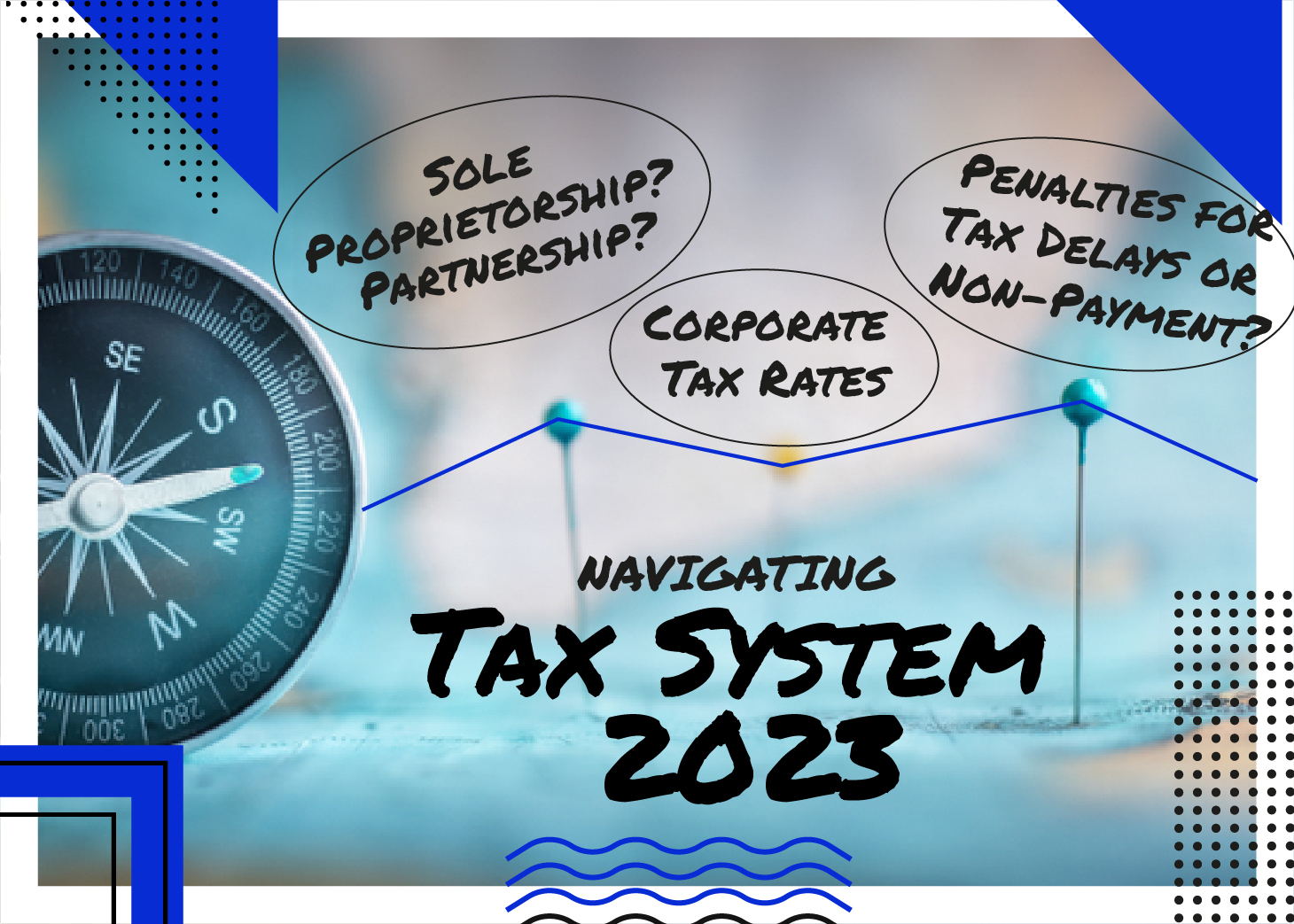
The Ins and Outs of Incorporating Your Startup in Singapore- Guide for Entrepreneurs
You have a brilliant business idea and are ready to hand shake into entrepreneurship. A world-changing creative idea is a fantastic thing for an entrepreneur. The most typical tool for an entrepreneur to establish and execute his or her concept is a company organization. But, before diving headfirst into building your startup, you need to make some key decisions to set yourself up for success. One of the most important is choosing where to incorporate your startup. If you’re looking for a business-friendly environment, low taxes, and a strategic location in Asia, Singapore should be at the top of your list.
Incorporating startup in Singapore offers entrepreneurs like yourself numerous benefits to help your startup thrive. This guide will walk you through the ins and outs of registering your company in Singapore so corporate entity is correctly and quickly incorporated in order for the new venture to be successful. By the end, you’ll have a clear roadmap to launching your dream startup in one of the world’s leading business hubs.
Why Singapore Is the Perfect Place to Incorporate Your Startup?
Singapore is a startup hub for entrepreneurs, and for a good reason. Here are a few of the major edges you will get of incorporating your startup in Singapore.
- Singapore has one of the lowest corporate tax rates in the world at 17%. This means more of your profits stay in your pocket.
- Singapore ranks on top in the World Bank’s Ease of Doing Business report. Setting up and running a company is simple, with minimal red tape.
- Singapore has a thriving venture capital scene with many investors looking to fund innovative startups. Government grants and incentives are also available for qualifying businesses.
- It is located in the heart of Southeast Asia, with easy access to emerging markets. It’s a global transportation hub, so you can easily connect with the rest of the world.
- Its workforce is highly educated, multilingual, and business-friendly. It’s easy to find talented employees or contractors to help your startup succeed.
- Singapore has co-working spaces, incubators, accelerators, and a lively startup community to help support your business. Networking and finding mentors or collaborators is easy.
Singapore rolls out the red carpet for startups and entrepreneurs. If you want to incorporate startup in Singapore that offers low taxes, a skilled workforce, good infrastructure, and a thriving business environment, it will be a win-win situation for you.
Choosing a Business Structure to Incorporate
As an entrepreneur in Singapore, one of the first big decisions you’ll make is choosing a business structure. The three most common options are a private limited company (PLC), limited liability company (LLC), or partnership. Which is right for your startup? Your selection can have an impact on how much you pay in taxes, the image and perception of your business that you project to clients and suppliers, the quantity of paperwork your company is needed to complete, the personal liability you face, and your ability to raise fund and develop your business.
As a new business, you have the option of forming a Limited Liability Company, a Limited Liability Partnership, or a Sole Proprietorship. A Limited Liability Company is the most modern, flexible, and expandable form available in Singapore. For serious entrepreneurs, it is also the preferred type of Singapore business entity.
Requirements and Documents Needed to Incorporate
Once you’ve settled on a specific type of business structure for your firm, you should start for documentation part as soon as possible. To incorporate your startup in Singapore, you’ll need to gather some important documents. Think of this as gathering supplies for an exciting new adventure. Business registration documents a bunch of some basic documents.
- First, come up with a unique name for your company that isn’t already registered. Check name availability on the ACRA website.
- Then Memorandum and Articles of Association, this document your company’s constitution and internal rules. You can use the standard templates on the ACRA website.
- Provide personal details for all officers, directors and shareholders of the company. Along with Registered business Address.
- As the entrepreneur behind the wheel of this new venture, you’ll need to provide a copy of your recent official picture, passport and proof of your residential address.
The entire incorporation process typically takes 3 to 7 working days in Singapore. Once ACRA approves your application, your company will officially exist as a legal entity. Singapore has one of the simplest and most straightforward company registration processes in the world. Staying organized and submitting complete, accurate documentation will set your startup off on the right foot.
Procedure and Registering Your Company With ACRA
Once you’ve decided on a business structure and named your company, it’s time to register it with ACRA (Accounting and Corporate Regulatory Authority). This makes your company as a legal entity and allows you to open a corporate bank account, hire employees, and more.
- First prepare documents
To register online with ACRA, you’ll need to have company name approval letter, particulars of directors, shareholders, company secretary, and auditors, Memorandum and Articles of Association and registered office address ready to start your journey of incorporating startup in Singapore.
- Registering on BizFile+
Head to BizFile+, ACRA’s online filing website. Create an account and log in to begin the registration process. You’ll enter the details from your prepared documents, choose a company registration number, and pay the registration fees.
- Obtaining Your Unique Entity Number (UEN)
Upon successful registration, ACRA will issue your company a UEN, which acts as your company’s identification number. The UEN will appear on all your company’s official documents like invoices, name cards, and legal contracts.
Depending on your business activities, you may need additional licenses or permits. For example, companies dealing with finance, healthcare or food services will require industry-specific licenses.
With your company now officially registered, you can move on to setting up a corporate bank account, hiring employees, finding office space and getting down to business. The registration process may seem complicated, but ACRA’s online filing system makes incorporating your startup in Singapore a straightforward process.
How Much Does It Cost to Set Up a Company in Singapore?
To register a private limited company in Singapore, you’ll need to pay registration fees to ACRA, the government agency that oversees business registration.
- $300 to register a new local company
- $50 to register a new business name
- $15 per share certificate
So you can expect to pay around $365 to $415 to officially register your company with ACRA. Unless you have experience setting up companies in Singapore, it’s best to hire a corporate lawyer to help you with the necessary legal paperwork. This includes preparing your company’s Articles of Association, Memorandum of Association, and other incorporation documents. You can expect to pay between $1,500 to $5,000 in legal fees for standard company incorporation services.
The exact fees will depend on the complexity of your business and company structure. As Singapore is a business-friendly country with low costs, don’t underestimate the importance of paying for quality professional services to incorporating your startup in Singapore correctly from the start.
How to Apply for Key Business Permits and Licenses?
Once you’ve registered your business, it’s time to obtain some other proper licenses and permits such as work passes or trade permits to legally operate. This process can seem complicated, but by follow up the necessary steps, you’ll be in good place in no time.
Work Passes for foreign employees if you plan to hire foreign professionals, you’ll need to obtain the proper work passes such as Employment Pass (EP) for foreign professionals, managers and executives, S Pass for mid-level skilled foreign staff and Work Permit (WP) for semi-skilled foreign workers in construction, manufacturing, and services. Work pass applications are submitted through the Ministry of Manpower’s Work Pass Division and can take 4 to 8 weeks to process.
Some businesses require additional permits and licenses to operate, especially those involving the sale of goods and services. For businesses engaged in trading activities, trade license issued by Enterprise Singapore. Selling or manufacturing food products also need licensed issued by the Singapore Food Agency. The requirements and application process for trade permits and licenses vary depending on the nature of your business.
Government Grants and Tax Incentives for Singapore Companies
As a startup in Singapore, you’ll benefit from several tax incentives and grants to help your business grow. Some of the major tax incentives include:
- For your first three years, you can enjoy full tax exemption Startup Tax Exemption (SUTE) Scheme on the first $100,000 of chargeable income and a further 50% exemption on the next $200,000. This allows you to re-invest more into scaling your business.
- Receive enhanced tax deductions and allowances for R&D activities and IP acquisition/in-licensing. This encourages innovation and technological advancement.
- Enjoy tax deductions on costs related to Intellectual Property IP registration and in-licensing.
- Receive tax allowances when acquiring or merging intellectual property or shares in another company. This facilitates business expansion and restructuring.
- Receive up to $50,000 in co-funding for starting a business. You must be a first-time entrepreneur and the business must be less than 5 years old.
- Tech Startups can receive up to $30,000 in co-funding for technology innovation and adoption. Your business must be in a tech sector like AI, cybersecurity or medtech.
- For businesses in strategic sectors with high growth potential can receive up to 70% co-funding for capability development, innovation and internationalization.
Make sure to check if your business qualifies for any of these schemes to ease your financial burden during the early stages. With the help from these initiatives, you’ll be in a better position to succeed and scale new heights.
Protecting Your Intellectual Property in Singapore
Protecting your intellectual property is crucial when incorporating a startup in Singapore. Your Intellectual Property things like your company name, logo, inventions, and proprietary business methods are valuable assets that need safeguarding.
Apply to register your company name and logo as trademarks with the Intellectual Property Office of Singapore (IPOS) as soon as possible. This will prevent others from using similar names or logos, and allow you to take legal action against infringers. The registration process typically takes 9-15 months and costs between $250 to $1,000 per trademark.
If your startup leads creative works like software, books, music, or other media, register the copyrights. Copyright protects original works of authorship for the lifetime of the creator. Registration keeps a public record of your claim to the copyright and allows you to bring legal action against infringement. Taking these proactive steps will put you in a strong position to defend your intellectual property and set your startup up for success in Singapore.
Final Words
Singapore welcomes you with open arms, take a chance and take charge of your destiny. Incorporate your startup in Singapore, build your team, create your product or service, and get ready to take the startup world by storm.
Fortunately, the job of incorporation and maintaining its ongoing compliance can be outsourced from a competent company such as Company Incorporation Service. We have a single all in one package for all of your problems during the incorporation process. With simple and stress-free company incorporation, our service will help you for incorporating startup in Singapore easily. We can handle everything from name registration through documents, work permits, and tax filing. What are you waiting for? Take that first step to turn your vision into a reality.




